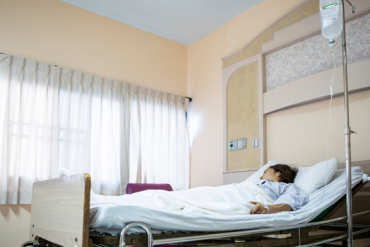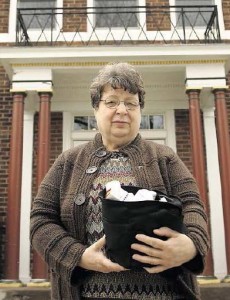By Susan Jaffe | Kaiser Health News | July 29, 2015 | This KHN story also ran in 
The U.S. Senate unanimously approved legislation Monday night requiring hospitals across the nation to tell Medicare patients when they receive observation care but have not been admitted to the hospital. It’s a distinction that’s easy to miss until patients are hit with big medical bills after a short stay.
miss until patients are hit with big medical bills after a short stay.
The vote follows overwhelming approval in the U. S. House of Representatives in March. The legislation is expected to be signed into law by President Barack Obama, said its House sponsor, Texas Democratic Rep. Lloyd Doggett.
It’s called the NOTICE Act, short for “Notice of Observation Treatment and Implication for Care Eligibility.” The law would require hospitals to provide written notification to patients 24 hours after receiving observation care, explaining that they have not been admitted to the hospital, the reasons why, and the potential financial implications.
Those implications can be dire. Observation care hurts seniors in two ways: It keeps Medicare’s more comprehensive hospitalization coverage from kicking in, and it means they may not get Medicare’s limited nursing home benefit if they need care in a facility after being in a hospital.
To qualify for Medicare’s nursing home coverage, beneficiaries must first spend three consecutive midnights as an admitted patient in a hospital, and observation days don’t count. Without that coverage, seniors could pay thousands of dollars for the nursing home care their doctor ordered, or else try to recover on their own. Observation care is a classification used when patients are not well enough to go home but not sick enough to be admitted. [Continued in Kaiser Health News]…
 antipsychotic drugs to staffing. Some are required by the Affordable Care Act and other recent federal laws, as well as the president’s executive order directing agencies to simplify regulations and minimize the costs of compliance.
antipsychotic drugs to staffing. Some are required by the Affordable Care Act and other recent federal laws, as well as the president’s executive order directing agencies to simplify regulations and minimize the costs of compliance. in a nursing home or long-term care facility, they need to know that their loved one’s health and safety are priorities.”
in a nursing home or long-term care facility, they need to know that their loved one’s health and safety are priorities.”

 switch out of their plans and join traditional Medicare or another Medicare Advantage plan whose provider network includes their doctors.
switch out of their plans and join traditional Medicare or another Medicare Advantage plan whose provider network includes their doctors. Medicare Advantage policies cover 16 million seniors and are an alternative to the government-run Medicare program. Medicare Advantage members can only get care from a network of providers under contract to participate in their plan. They must remain in their plans for the calendar year, with some rare exceptions, but losing their doctor has not been among the permitted reasons. [More from
Medicare Advantage policies cover 16 million seniors and are an alternative to the government-run Medicare program. Medicare Advantage members can only get care from a network of providers under contract to participate in their plan. They must remain in their plans for the calendar year, with some rare exceptions, but losing their doctor has not been among the permitted reasons. [More from  A disabled senior with serious health problems who successfully challenged Medicare for denying her home health care coverage has racked up another win against the government.
A disabled senior with serious health problems who successfully challenged Medicare for denying her home health care coverage has racked up another win against the government. “It has been standard operating procedure that patients will be discontinued from therapy services because they are not improving,” she said.
“It has been standard operating procedure that patients will be discontinued from therapy services because they are not improving,” she said.


 man Services Secretary Kathleen Sebelius. In January, a federal judge approved a settlement in which the government agreed that this “improvement standard” is not necessary to receive coverage.
man Services Secretary Kathleen Sebelius. In January, a federal judge approved a settlement in which the government agreed that this “improvement standard” is not necessary to receive coverage.


 n., she could have bought a three-week supply. In South Florida, Pearl Beras, 85, of Boca Raton, Fla., said her hospital charged $71 for one blood pressure pill for which her neighborhood pharmacy charges 16 cents. Several other Medicare patients in Missouri were billed $18 for a single baby aspirin, said Ruth Dockins, a senior advocate at the Southeast Missouri Area Agency on Aging.
n., she could have bought a three-week supply. In South Florida, Pearl Beras, 85, of Boca Raton, Fla., said her hospital charged $71 for one blood pressure pill for which her neighborhood pharmacy charges 16 cents. Several other Medicare patients in Missouri were billed $18 for a single baby aspirin, said Ruth Dockins, a senior advocate at the Southeast Missouri Area Agency on Aging.